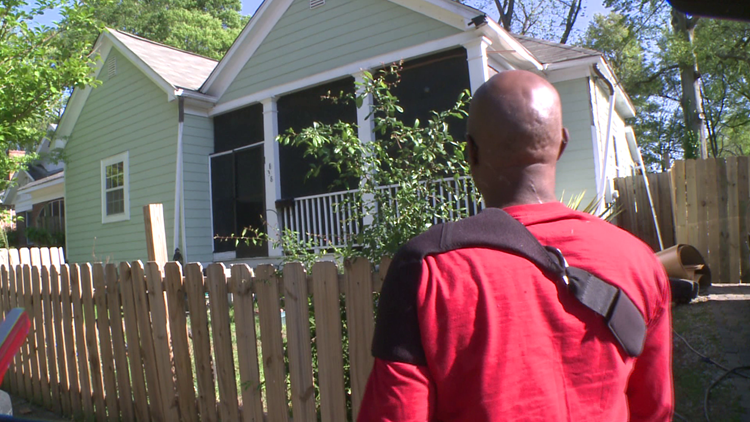For most Americans looking to live out the American Dream, a piece of it means finding their dream home.
But for some Metro-area families who thought they were that much closer of having that dream fulfilled found instead they bought a home they actually don't own.
The official name is a Contract for Deed, or a rent-to-own transaction. But the Atlanta Legal Society calls it a scam – and a legal one at that.
It's hard for many to wrap their heads around, but it happens to thousands of people.
To understand how it works, 11Alive's Faith Abubey drove to East Point where she met with Zachary Anderson.
The resident has poured money into the house to do everything possible to make it a home.
"(It) has a new roof put on, painted it," Anderson described as he showed off the home to 11Alive. "You look around, everything that you see, that's what's been done around here."
Despite having all the responsibilities of a homeowner, Anderson explained he's reaping none of the benefits.
In 2011, Anderson bought this home for $46,000. It was in foreclosure, abandoned and had lots of problems. The 57-year-old saw an opportunity to put in work and make it home. But months after signing the papers he found out he doesn't actually own it.
Anderson had been sold a contract for a deed, instead of the warranty deed for the house itself.
That meant the investment firm, Harbour Portfolio, expected him to make repairs to bring it code, never miss a payment, pay the taxes and insurance and then, maybe if he never makes a mistake, he could own it decades in the future.
"I was just furious," he described. "Seems like it should be yours when you have to pay the taxes on it, the upkeep the insurance and you know, God knows, everything."


Darius Woods is Anderson's Attorney at the Atlanta Legal Aid Society, which is now helping homeowners who are now suing the investment firm.
"We definitely think it was a predatory type of thing," Woods stated. " It was a homeowner ship scam that targeted low-income communities, specifically communities of color, because they face credit barriers."
Woods went on to explains that the group allegedly targeted are a potential homeowners who have never purchased a house before and aren't familiar with how the process works.
"All the paper work was laid out to make it seem like they were purchasing a home," Woods said. "They even got a letter saying congratulations on your new home but comes to find out they weren't actually purchasing a home."
While the process is still legal, some states do regulate contract for deed transactions. However, Georgia is not one of them.
Despite Harbour Portfolio asking the courts to dismiss the lawsuit, a judge has ruled it can move forward. Harbour's attorney declined to comment because of the ongoing litigation, but sent 11Alive a statement saying what they did is in full compliance with federal law, that they didn't target anyone based on race and they think the lawsuit has no merit.
Nonetheless, Anderson told 11Alive he sees the order as hope.
"I'm too far in it now to just give it up," he concluded.



